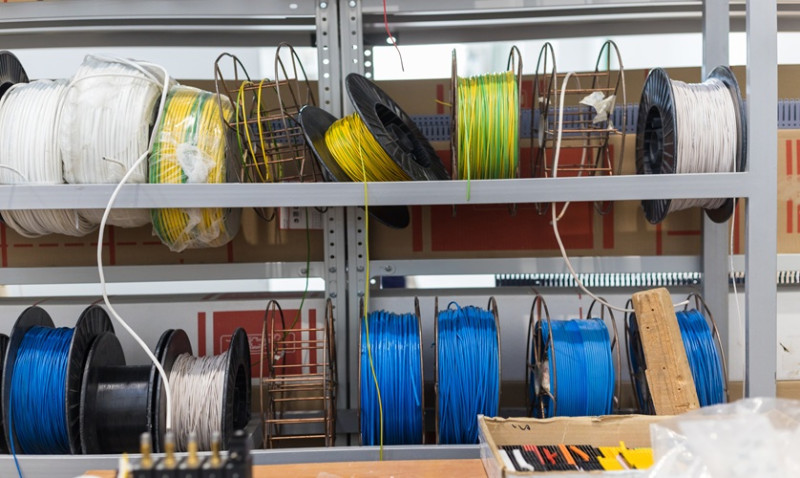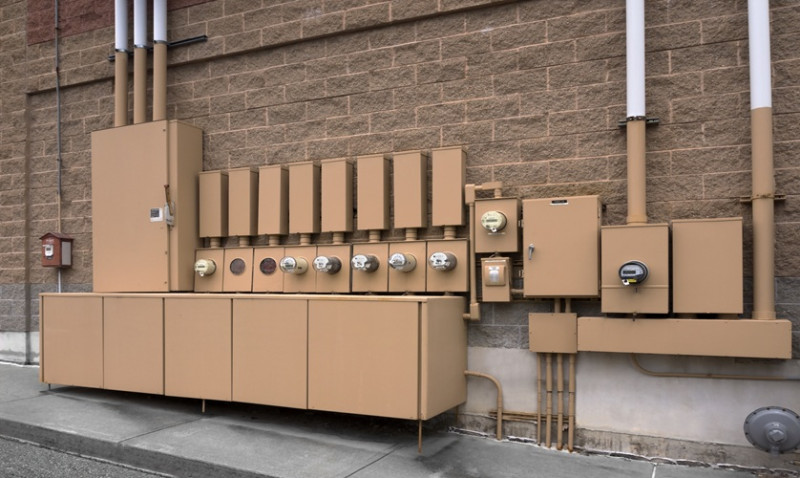
Whether you're tackling a full home renovation, redesigning your office, or building from the ground up, understanding the role of electrical contractors is essential. From designing the electrical layout to ensuring compliance with UK safety standards, an experienced electrical contractor can make all the difference in the success and safety of your project.
In this article, we’ll break down everything you need to know about electrical contractors in the UK, especially if you’re a DIY enthusiast, an interior designer, an architect, or a professional tradesperson. You'll learn what they do, why they're important, how to choose the right one, and what to consider before starting your next electrical project.
What is an Electrical Contractor?
An electrical contractor is a professional or company licensed to perform electrical work. This includes installation, maintenance, repair, and upgrades of electrical systems. Unlike electricians who are typically individual tradespeople, electrical contractors often run a business that may employ several qualified electricians.
In the UK, electrical contractors work across residential, commercial, and industrial projects. Their expertise goes far beyond just wiring a plug – they plan entire electrical systems, ensuring efficiency, safety, and integration with modern technologies.
It's important to note that all electrical contractors in the UK must comply with the regulations set out in the IET Wiring Regulations (BS 7671). Most reputable electricians or contractors are also registered with a governing body such as NICEIC, ELECSA, or NAPIT – this registration ensures quality and competence.
Hiring an electrical contractor often means bringing on board a project manager, someone who will oversee the entire electrical aspect of the job, from sourcing components to quality checking the final installation. This makes them an essential part of any construction or renovation team.
Why Hiring a Professional Electrical Contractor Matters
Electrical work is not only technical and complex—it can also be dangerous. Even small errors can lead to fire hazards, injuries, or costly repairs down the line. That’s why, in most cases, DIY electrical work is not advisable and, in many scenarios, not even legal without proper certification under Part P of the Building Regulations.
Professional contractors bring peace of mind. They understand the full framework of electrical safety and stay up to date with frequent changes in UK regulations. They also carry liability insurance that protects both their work and your property.
Moreover, reputable contractors will provide valid guarantees for their work, giving you long-term assurance in the event of faults. Their advice can also prove priceless—especially for architects and designers looking to incorporate high-end lighting, smart home systems, or energy-saving technology into a project.
If you’re a homeowner upgrading your kitchen or a designer planning a complete refurbishment, a skilled contractor will ensure that circuits aren’t overloaded, cables are hidden but accessible, and everything complies with local authority guidelines.
Types of Services Offered by Electrical Contractors
Electrical contractors provide a wide range of services tailored to different sectors. Understanding the available services helps you better plan your project and ensures no crucial element is overlooked.
Typical services include:
- Full and partial rewirings
- Lighting design and installation
- Consumer unit upgrades
- EV charging point installation
- Smart home automation
- Security system installations
- Electrical testing and inspection (EICR reports)
- Emergency call-outs and fault finding
For commercial clients, services may also extend to fire alarm systems, emergency lighting, three-phase power systems, and PAT testing. It's important to discuss your requirements in detail so that all components are considered during the initial planning phase.
Knowing what services your contractor offers can also help you consolidate services for better time and cost efficiency. For instance, if you're installing a kitchen, finding a contractor who can also install lighting, under-cabinet servers, and sockets in one visit can significantly streamline your timeline.
How to Choose the Right Electrical Contractor
Selecting the right contractor makes all the difference in your project's overall quality and cost-effectiveness. Here’s what to consider during your search:
- Certifications and Registrations: Look for contractors who are Part P registered and associated with a recognised body such as NICEIC or NAPIT.
- Experience: Do they have experience with similar projects—residential, commercial, industrial? This is especially important for specialised builds like smart homes or historical renovations.
- References and Reviews: Ask for examples of previous work or check online platforms like Checkatrade, Trustpilot, or Google Reviews.
- Insurance: Public liability and professional indemnity insurance are a must to protect both parties.
- Quotes and Transparency: Make sure the contractor provides a detailed breakdown of costs and timelines before work begins.
Don’t rush the process. Even if your project is urgent, taking the time to vet your contractor properly will prevent problems and delays later on. During initial consultations, observe how well they communicate – clear, open communication is a sign of a reliable and professional contractor.
Costs: What to Expect When Hiring in the UK
Costs can vary widely depending on the region, complexity of the job, and the level of expertise required. Below is a general guide to give you a sense of common electrical service pricing in the UK:
| Service | Estimated Cost Range |
|---|---|
| Full house rewire (3-bed home) | £3,000 – £6,000 |
| Consumer unit (fuse box) upgrade | £400 – £700 |
| Lighting installation (per room) | £150 – £300 |
| EV charger installation | £800 – £1,500 |
| Electrical inspection (EICR report) | £100 – £250 |
Always obtain a few quotes to compare, but beware of costs that seem unusually low—it may reflect in their workmanship or lack credentials. Also, anticipate additional costs if working in older buildings, which may require upgrades to bring systems up to current legal standards.
Questions to Ask Before You Hire
Before hiring an electrical contractor, make sure you’re comfortable with their experience and approach. Ask them questions such as:
- Are you registered with a government-approved scheme?
- Can I see examples of recent similar projects?
- What is included in your quote—materials, labour, testing?
- Will you provide an Electrical Installation Certificate (EIC)?
- How will you ensure compliance with BS 7671 and Building Regulations?
- What’s your process if a problem arises during the installation?
- Do you carry out testing at the end of the job?
Asking these questions will separate the hobbyists from the true professionals. A reputable contractor won’t hesitate to provide documentation or examples that support their competence.
Final Thoughts
Electrical systems are a foundational aspect of any building, impacting everything from lighting and heating to security and convenience. Whether you’re a homeowner planning a kitchen refit or a designer coordinating a high-end renovation, understanding the ins and outs of hiring a professional contractor is key to a successful and safe outcome.
By choosing qualified professionals, asking the right questions, and understanding what to expect, you’ll not only ensure compliance with UK regulations but also achieve a higher quality result. Reliability, safety, and forward-thinking design—these are the benefits a good electrical contractor brings to your project.
And remember—never cut corners with electricity. Take your time, find the right contractor, and enjoy peace of mind for years to come.







